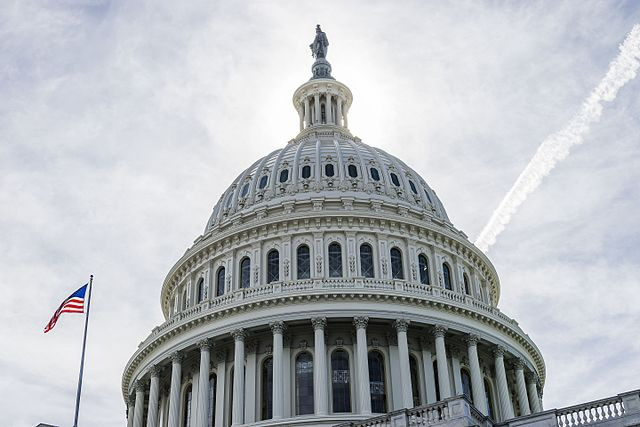As the U.S. Congress narrowly avoided a government shutdown this week, lawmakers now face the prospect of another looming funding crisis just before the Christmas holiday. The stopgap measure passed by both the House and Senate on Wednesday will keep federal operations running through Dec. 20, but it sets the stage for a potential budget showdown during the final weeks of the year. The current measure comes after weeks of tense negotiations, as both parties worked to avert a shutdown ahead of the Nov. 5 election.
The next hurdle for Congress will be agreeing on the 12 appropriations bills needed to fund government agencies for the 2025 fiscal year. With the election season in full swing, lawmakers have a narrow window to pass these critical funding measures before the holidays. Yet, with only five weeks left on the legislative calendar, many doubt Congress can complete all the appropriations work in time.
The more likely scenario, according to several senior lawmakers, is that Congress will cobble together another massive omnibus spending bill or extend the current funding levels into 2025 through another continuing resolution (CR). "I expect that we'll negotiate an omnibus," said Rep. Debbie Wasserman Schultz (D-Fla.), a member of the House Appropriations Committee. She pointed out that although House Speaker Mike Johnson (R-La.) has vowed to break the tradition of passing year-end omnibus bills, recent events have shown that bipartisan cooperation is still necessary to prevent a shutdown.
The CR passed this week came after Speaker Johnson attempted to rally Republicans around a six-month extension tied to a Trump-backed bill that would require proof of citizenship for voting in federal elections. That effort failed when 14 Republicans opposed the measure, forcing Johnson to strike a deal with Democrats on a clean, nearly three-month stopgap measure. In response to the failed plan, Rep. Chip Roy (R-Texas), a member of the conservative Freedom Caucus, criticized some of his colleagues for scuttling Johnson's original proposal. "Some Republicans decided to kill it, so now we've got a CR into December. Congratulations," Roy remarked.
Although the short-term funding measure passed both chambers with bipartisan support-341-82 in the House and 78-18 in the Senate-it has not alleviated concerns about what happens in December. Senior lawmakers such as House Appropriations Committee Chairman Tom Cole (R-Okla.) warned that the outcome of the Nov. 5 election could greatly influence the year-end negotiations. Should Republicans sweep the House, Senate, and White House, Cole noted, they may push for another short-term funding patch to gain more leverage in 2025.
Meanwhile, moderate Democrats and Republicans are hoping to avoid another funding cliff. House Minority Leader Hakeem Jeffries (D-N.Y.) expressed confidence that Democrats and Republicans could work together to prevent a shutdown in December. "I think we'll get there," he said. However, Jeffries acknowledged that the coming weeks would be critical in determining whether Congress can resolve its budget disputes before the holiday recess.
Some Republicans, however, remain staunchly opposed to any potential omnibus package. Rep. Byron Donalds (R-Fla.) voiced his frustration over the likelihood that Congress will revert to a large, year-end spending bill that lumps all appropriations together. "Of course I'm concerned. Everybody is," he said. Donalds criticized the recurring pattern in Washington where leadership cuts deals at the last minute, leaving rank-and-file members with little say in the process. "We do some massive spending bill right before Christmas that nobody ever really sees," he said.
Adding to the pressure, the current fiscal landscape is challenging. The Moody's credit rating agency recently warned that the ongoing political gridlock in Washington is likely to worsen the federal government's fiscal outlook. Although Congress has temporarily staved off a shutdown, Moody's downgraded the U.S. credit outlook to "negative" earlier this month, citing concerns about the country's long-term financial health.
As December approaches, House Speaker Mike Johnson faces a delicate balancing act. While he has managed to pass critical legislation, including this week's CR, by working with Democrats, he also needs to maintain the support of his own party, particularly the conservative wing. Johnson's predecessor, Kevin McCarthy, was ousted by hard-line Republicans earlier this year for striking a bipartisan spending deal, and Johnson will be keen to avoid a similar fate.






